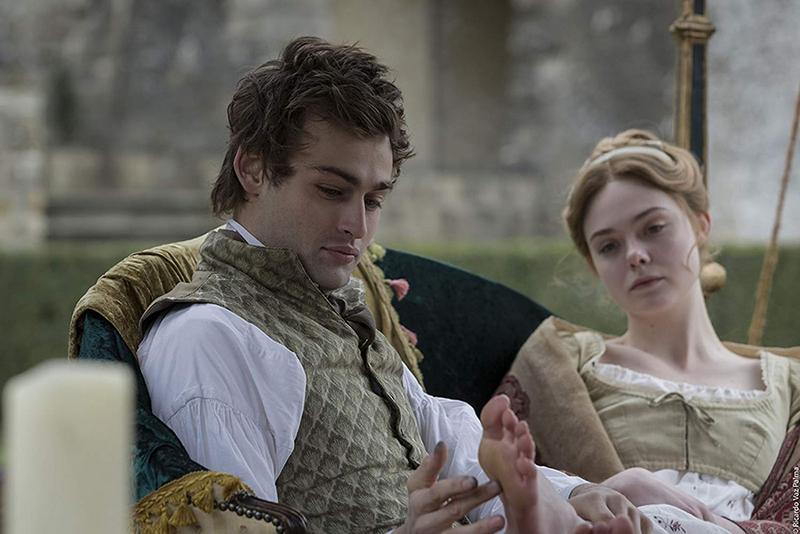Mary Shelley
 for sexuality and thematic elements including substance abuse.
for sexuality and thematic elements including substance abuse.
Reviewed by: Charity Bishop
CONTRIBUTOR
| Moral Rating: | Extremely Offensive |
| Moviemaking Quality: |
|
| Primary Audience: | Adults |
| Genre: | Biography History Drama |
| Length: | 2 hr. |
| Year of Release: | 2017 |
| USA Release: |
April 28, 2018 (festival) May 25, 2018 (limited) DVD: August 28 2018 |
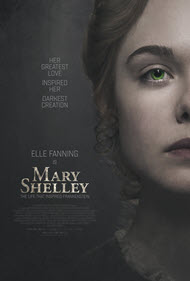

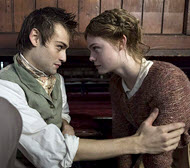
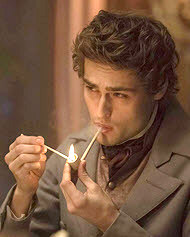
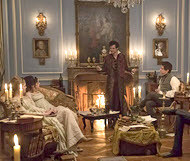
Are humans naturally good or evil? Answer
What is SIN AND WICKEDNESS? Answer
The emptiness of an existence driven by SELF-GRATIFICATION
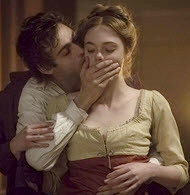
SEXUAL LUST outside of marriage—Why does God strongly warn us about it? Answer
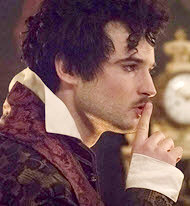
What is SEXUAL IMMORALITY? Answer
Extramarital affairs / adultery
Suicide of wife
SUICIDE—What does the Bible say? Answer
If a CHRISTIAN commits suicide, will they go to Heaven or Hell? Answer
This film presents Mary Shelley as a Liberal FEMINIST ICON. Is the Feminist movement the right answer to the mistreatment that some women endure in this sinful world? Answer
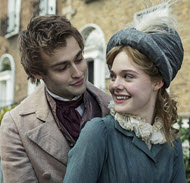
PURITY—Why should I save sex for marriage? Answer
How can I deal with temptations? Answer
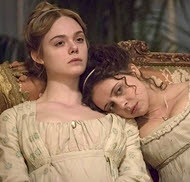
What are the consequences of sexual immorality? Answer
GAY—What’s wrong with being Gay or bi-sexual? Answer
What about Gays needs to change? Answer
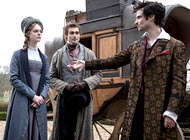
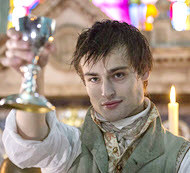
| Featuring |
|---|
|
Elle Fanning … Mary Shelley Douglas Booth … Percy Shelley Tom Sturridge … Lord Byron Stephen Dillane … William Godwin Ben Hardy … John Polidori Maisie Williams … Isabel Baxter Bel Powley … Claire Clairmont Joanne Froggatt … Mary Jane Clairmont See all » |
| Director |
|
Haifaa Al-Mansour |
| Producer |
|
BFI Film Fund [Great Britain] Film Fund Luxembourg [Luxembourg] See all » |
| Distributor |
| IFC Films |
It’s hard to believe one of literature’s most memorable creations, Frankenstein, came from the mind of a teenager. Mary Godwin was only nineteen when she wrote her famous novel, but it came from a place of intense pain. This film chronicles the events that led to its creation.
Born out of wedlock, but “legitimized” through her parents’ marriage, sixteen year old Mary Godwin (Elle Fanning) is a romantic at heart, a long-time scribbler, and a devotee of her atheist philosopher father William Godwin’s (Stephen Dillane) radical views. He rebels against traditional society’s morals and encourages a liberal embracing of all life’s passions… or at least, he did in his wild and reckless youth. Now, he runs a struggling bookshop and wallows in his cynicism.
How can we know there’s a God? Answer
What if the cosmos is all that there is? Answer
If God made everything, who made God? Answer
How to witness to atheists
Since Mary struggles to get along with her stepmother, William sends her away. In the country, while in the care of Isabel Baxter (Maisie Williams), she meets Percy Shelley (Douglas Booth), a philandering poet with whom she has an immediate attraction.
He pursues her back to London, where she’s appalled to learn he has a wife and child. Percy pushes her to abandon any sense of morality and live with him. Her father forbids it. Mary packs up her stepsister Claire (Bel Powley) and moves in with Percy. But she soon discovers “love” cannot pay the bills and heartache awaits because of her actions, not only for herself, but Claire—when Claire winds up entangled with the infamous rake Lord Byron (Tom Sturridge).
What is SEXUAL IMMORALITY? Answer
About ADULTERY
SEXUAL LUST—Why does God strongly warn us about lustfulness outside of marriage? Answer
PURITY—Should I save sex for marriage? Answer
TEMPTATIONS—How can I deal with temptations? Answer
CONSEQUENCES—What are the consequences of sexual immorality? Answer
This film contains an honest look at Mary Shelley, both her strengths and her flaws. It does not shy away from revealing the people she associated with, nor underscoring her naïve ambitions with her father’s more jaded views. When she challenges him for being a hypocrite in not condoning her illicit relationship with Percy, her father points out that her own mother’s liberal attitudes toward sexuality caused her no end of hardship, trial, and eventual heartache.
Mary believes people should be “free to live as they choose,” without religion or morals interfering with their desires, but feels shocked and angry when Percy implies that to believe those things, she should have multiple lovers—as he does, and as all his friends do. She tells him she will not quibble with others’ choices, but that “you are the only one for me.” Their relationship leads to her becoming a social outcast, the birth and loss of an illegitimate child, Claire becoming a sexual casualty of Lord Byron, and Mary writing Frankenstein.
Cast in this light, the novel takes on new meaning—Mary appears (in this film’s interpretation) to be raging against the men in her life who have “made her what she is” (an unwanted Creature) and then abandoned her (speaking of her father, whose views and upbringing caused her to hold such liberal opinions, and who turned his back on her romantic choices).
Why does God allow innocent people to suffer? Answer
Did God make the world the way it is now? What kind of world would you create? Answer
What about the issue of suffering? Doesn’t this prove that there is no God and that we are on our own? Answer
Does God feel our pain? Answer
ORIGIN OF BAD—Why are there bad things in our world? Answer
Claire also sees herself in the Creature, for she feels used and abused by Lord Byron. The script touches on how Byron used and abandoned women, and mistreated his friends. It also delves into the morbid weekend Percy, Mary, Claire, Byron, and John Polidori (Ben Hardy) spent together, which resulted in her novel. (They challenged each other to write “a ghost story.)
It’s difficult to judge a movie’s moral merits based on historical events; Mary held these views, she engaged in an illicit affair (that later became marriage) with a promiscuous man, she lost a child, and she was never apologetic about it. On-screen, Mary admits “what a mess we have made,” in contrast to Percy’s denial, but also would not change her life. She chose it. She will stand by it.
From a Christian perspective, the attitudes toward morality (or lack of it) are appalling, and we watch in horror at the consequences that unfold as a result—broken hearts, ruined lives, poverty, loneliness, and despair.
Content-wise, there’s little violence or bad language. Much discussion revolves around illicit relationships; a man propositions Mary (she “answers with her fist”), and Percy tells her it is fine to engage in casual relationships with other men, in fact, he encourages it. The film implies he is also sleeping with Claire. Byron calls Claire a “dalliance,” and refuses to have anything to do with her or their illegitimate child. They reference Mary’s parents being unmarried when they conceived her, and her affair with an artist. A sensual montage shows Percy and Mary “making love” (lots of kissing, heavy breathing, few clothes, but no graphic nudity); it shows them having brief, clothed sex once; another time he clutches onto her, kisses her, and pulls her out of frame.
TRUE LOVE—What is true love and how do you know when you have found it? Answer
For a follower of Christ, what is LOVE—a feeling, an emotion, or an action? Answer
Characters spout anti-religious beliefs and ideals, citing Christianity as an outdated concept that represses intellectual freedom. The film does not much go into the various historical figures’ anarchist beliefs.
While the story does not endorse virtuous behavior, I feel more mature viewers might enjoy the discussions it would raise about immorality and the consequences of our actions. God does not limit our morals to control us, or prevent us from pleasure, but to protect our hearts from situations such as befell Mary Shelley. It shows the danger of raising children on a set of principles you no longer hold. Byron and Percy Shelley left a wake of female devastation in their quest to be without moral scruples. This raw, honest look at Mary’s life reveals the emptiness of an existence driven by self-gratification.
- Sex: Moderately Heavy
- Nudity: Moderate
- Violence: Minor
- Profane language: Minor
- Vulgar/Crude language: “bloody”
- Occult: None
See list of Relevant Issues—questions-and-answers.


PLEASE share your observations and insights to be posted here.
